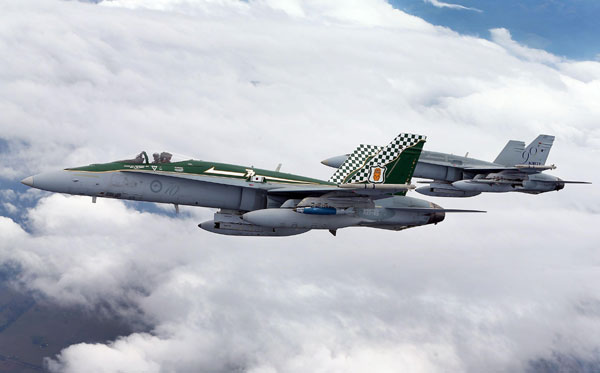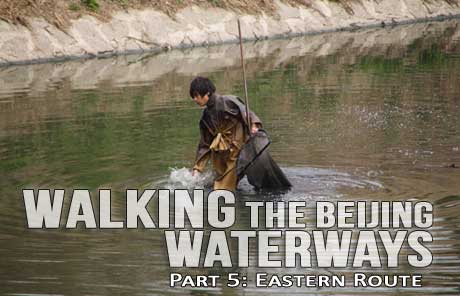Australia defense paper accepts rise of China's military
Updated: 2013-05-04 10:11
(China Daily/Agencies)
|
|||||||||||
 |
|
Royal Australian Air Force F/A-18 Hornets during a military exercise in February in Melbourne. [Photo/Agencies] |
Australia struck a conciliatory tone toward top trading partner China as it said that Beijing's rising defense capabilities are a natural outcome of its growing economy, according to a new strategy outlined in Australia's Defence White Paper 2013, released on Friday.
"The government does not approach China as an adversary. Rather, its policy is aimed at encouraging China's peaceful rise and ensuring that strategic competition in the region does not lead to conflict," the defense strategy said.
The white paper's welcoming attitude toward China's peaceful rise demonstrates Australia's emphasis on its ties with China, Foreign Ministry spokeswoman Hua Chunying said on Friday.
During her trip to China in early April, Australian Prime Minister Julia Gillard won praise in her own country for forging a new "strategic partnership" with Beijing.
China expects Australia to take the White Paper as an opportunity to produce tangible results from the partnership, Hua said.
Australia welcomes China's rise, but recognizes that it changes the strategic order of the region, Gillard said after the launch of the white paper.
Frances Adamson, Australian ambassador to China, on Friday welcomed the release of the white paper, which complements Australia's National Security Strategy, released in January, and the Australia in the Asian Century White Paper, released in October.
"Australia already has a long-standing defense relationship with China, underpinned by an active program of practical engagement. Building on the recently agreed strategic partnership between our two countries, Australia looks forward to continuing to develop that partnership with China to the benefit of both countries and the region as a whole," Adamson said in a news release.
The new defense strategy is the first reassessment of Australia's military priorities since 2009, and comes after the US' 2011 "pivot" to the Asia-Pacific region. Part of that pivot includes US marine rotations through a de facto US base in northern Australia.
Australia's new strategy stresses the need for both China and the US to build their strategic relationship, and says Australia does not believe it will have to choose between its alliance with the US and its strengthening ties with China.
The active and positive interactions and mutually beneficial cooperation between the US, Australia and China contribute to ensuring the region's prosperity and stability, Hua, said in response to a question about whether Australia has to choose between the US and China.
"Certainly there has been a lot of diplomatic varnish put on the text of this white paper, and there is nothing in there that should offend China outright," said Rory Medcalf, an analyst at the Sydney-based Lowy Institute, a strategic-policy think tank. "This white paper will certainly be one of the last steps in rebuilding Australia-China relations."
Zhang Yunbi in Beijing contributed to this story.
Related Stories
China issues white paper on national defense 2013-04-16 10:30
Defense budget growth slows 2013-03-06 07:14
China's defense policy key to Asia's stability: spokewoman 2013-03-04 12:01
Fu withholds China's defense budget 2013-03-06 09:53
Guangdong, Australia set up business council 2013-04-11 21:57
China is pivotal to Australia's interests: DM 2013-04-11 14:19
Today's Top News
Australia defense paper accepts rise of China's military
Investors shake off speculation of new listings
No evidence of human transmission: WHO
Rekindling memories of Nixon's 1972 visit
Unified standards for bottled water in the pipeline
Crackdown on food crimes
EC: China's economy to grow 8%
Former official sentenced to life imprisonment
Hot Topics
Lunar probe , China growth forecasts, Emission rules get tougher, China seen through 'colored lens', International board,
Editor's Picks

|

|

|

|

|

|





